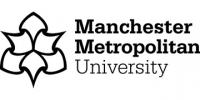MSc Health Psychology
Understand why our healthy new years’ resolutions always fizzle out despite our good intentions. Explore how our brains and bodies process stress and how psychology could help you fight off your next cold. Discover how to assess neuropsychological function.
Health psychology is a rapidly growing discipline, which can make a huge contribution to some of the big health issues currently facing society.
On this course, you’ll ask questions about the key health issues facing our communities, from our ageing population to pressurised health services, global health challenges and health inequalities.
You’ll explore human behaviour, health behaviour change, neuropsychology and research methods. And, you’ll seek ways to improve health, illness and healthcare systems through applying psychological theory and practical methods.
Some of the topics you’ll consider include the factors that make a person vulnerable to developing conditions like coronary heart disease or COVID-19, and why where people live matters to their health outcomes.
You might apply psychology to ensuring that children get enough physical activity, in understanding the experience of people living with a stroke, or how we can help people with diabetes to take their medications.
You’ll also study the principles and practice of research and evaluation, applying these skills to a field-based dissertation. You’ll complete a 70-hour work-based learning opportunity to apply your health psychology learning and build your work experience.
Health psychology is a rapidly growing discipline, one that can make a huge contribution to some of the big health issues facing society. Issues such as obesity, health inequalities, increasing chronic conditions, and an ageing population.
On our course in health psychology, you’ll take a biopsychosocial approach to health, developing core knowledge and critically reflecting on the many interlinking pathways to health and illness.
You’ll learn about key issues in health psychology, such as designing behaviour change interventions, helping people manage long-term conditions, neuropsychological assessment and working in multidisciplinary teams.
Day-to-day, you’ll learn through a mix of taught lectures and seminars, problem-based learning exercises, class discussions, case studies, and group fieldwork. As part of the Health Psychology Practice unit, you'll take part in 70 hours of work-based learning in a relevant setting. This is a fantastic opportunity for you to put your health psychology knowledge and skills into action.
You’ll complete a field-based dissertation of your choice, which involves collecting empirical data. Typically, you’ll identify a research question and prepare an evaluation proposal.
At Manchester Met, our teaching team includes practitioners and academics with experience in the NHS and in private practice in the UK and internationally. Our course specialises in health psychology practice. Lecturers’ research interests include neuropsychology, designing psychological interventions to promote healthy living and person-centred approaches to healthcare.
Core course teaching takes place on Mondays and Tuesdays, although additional study skills teaching and supervisory meetings will take place throughout the week. Therefore, if you are a full-time student you should ensure you are able to attend all teaching and supervision meetings to maximise your learning experience throughout the course.
Campus Information
Manchester campus
In the city centre, our Manchester Campus is well connected by many types of transport. Where possible, we encourage the use of walking or cycling to access the campus.
Intakes
- Sep
Application Processing Time in Days: 20
Application Process
Minimum English Language Requirements
| English Level Description | IELTS (1.0 -9.0) | TOEFL IBT (0-120) | TOEFL CBT (0-300) | PTE (10-90) | |
|---|---|---|---|---|---|
| Expert | 9 | 120 | 297-300 | 86-90 | |
| Very Good | 8.5 | 115-119 | 280-293 | 83-86 | |
| Very Good | 8 | 110-114 | 270-280 | 79-83 | |
| Good | 7.5 | 102-109 | 253-267 | 73-79 | |
| Good | 7 | 94-101 | 240-253 | 65-73 | |
| Competent | 6.5 | 79-93 | 213-233 | 58-65 | |
| Competent | 6 | 60-78 | 170-210 | 50-58 | |
| Modest | 5.5 | 46-59 | 133-210 | 43-50 | |
| Modest | 5 | 35-45 | 107-133 | 36-43 | |
| Limited | 4 | 32-34 | 97-103 | 30-36 | |
| Extremely Limited | < 4 | < 31 | < 93 | < 30 |
Job Opportunity Potential
We are a great, modern university, in a great global city, here to make an impact on Manchester, our nation and beyond, with a driving ambition to discover and disseminate knowledge, and make higher education accessible and beneficial to all those with the passion and ability to succeed.
Our campus is designed around the student experience, providing our students with high quality teaching in a friendly and supportive environment and with some of the best learning facilities in the UK.
We work closely with our city, with business, the community and our academic peers – locally, nationally and internationally – to be inventive and creative, generate great opportunities, and enable our students, colleagues and everyone whose lives we touch to make an impact.
We offer fantastic opportunities for both academics and those working in professional support roles. Our faculties are vivid communities and experimental workshops, vibrant spaces in which you can contribute, challenge and create. Communities in which you’ll innovate, experiment and grow.
Manchester is more than just a city. It’s a fashionable and exhilarating place to live, a cultural hub championing diversity, an urban centre built on a fascinating history and a world-leading powerhouse in business and academia. All in all, it is an exciting time to join Manchester Metropolitan University.
PSW Opportunity
2 Years PSW is applicable after the course completing (Bachelors level or above)
Admission Requirement / Eligibility Criteria
A 2:1 or above in an honors degree course in psychology or a related subject, or an overseas equivalent in a related subject. A BPS-accredited psychology undergraduate degree (or equivalent through a psychology conversion course) conferring Graduate Basis for Chartered Membership (GBC) is desirable but not essential to study on our MSc Health Psychology.
However, please note that you would need GBC if, following your MSc, you intended to pursue further doctoral-level training to become a qualified Health Psychologist in the UK.
Overseas applicants will require IELTS with an overall score of 6.5 with no less than 5.5 in any category, or an equivalent accepted English qualification.
For More Information Please Connect Our PSA Counselor
- Course Type: Full Time
- Course Level: Masters/PG Degree
- Duration: 01 Year
-
Total Tuition Fee:
16500 GBP
Annual Cost of Living: 9207 GBP
Application Fee: N/A
Similar Programs
- MPH Global Public Health at Manchester Metropolitan University
- MSc Computer Science at Manchester Metropolitan University
- MSc Artificial Intelligence at Manchester Metropolitan University
- MSc Advanced Materials at Manchester Metropolitan University
- MSc Zoo Conservation Biology at Manchester Metropolitan University
- MSc/PgDip Sport Nutrition at Manchester Metropolitan University

